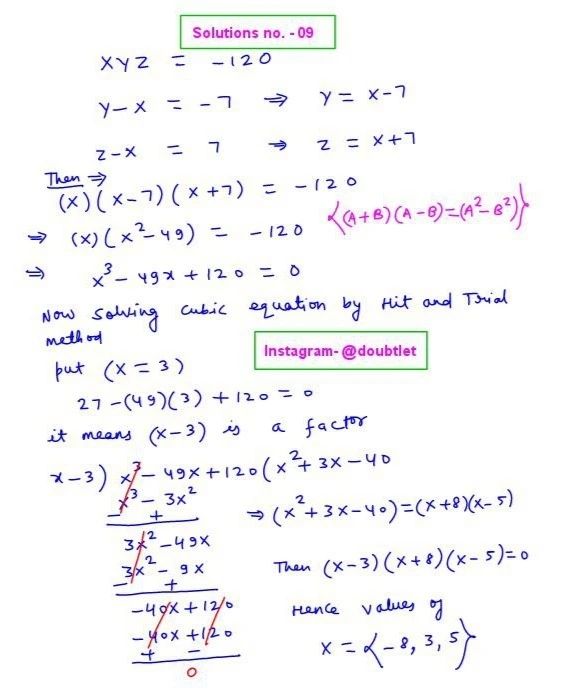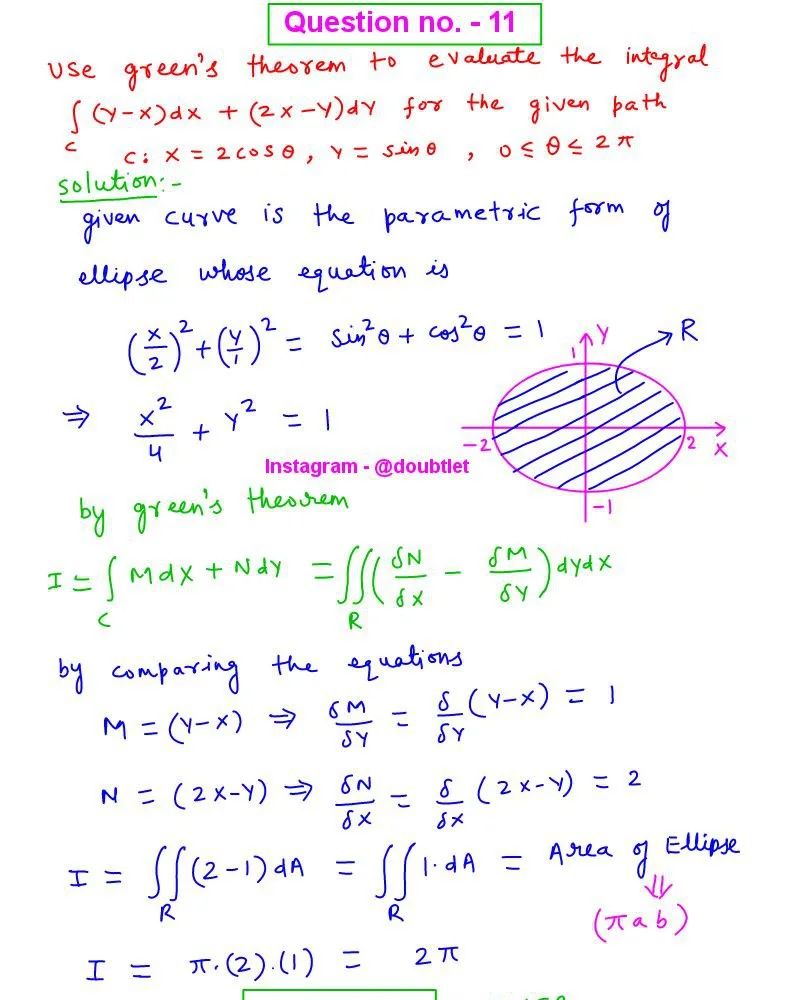









Question :
Solve the given differential equation:

Solution:

Neetesh Kumar | October 28, 2024
Differential Equation Homework Help
This is the solution to Math 2A, section 13Z, Fall 2023 | WebAssign
Math002ACh4Sec07 (Homework) Question - 3
Contact me if you need help with Homework, Assignments, Tutoring Sessions, or Exams for STEM subjects.
You can see our Testimonials or Vouches from here of the previous works I have done.
Step-by-step solution:
This is a Cauchy-Euler differential equation of the form:
In our case, the equation is:
Divide the entire equation by to simplify:
Step 1: Assume a Solution of the Form
For Cauchy-Euler equations, we assume a solution of the form:
Then, the first and second derivatives are:
Step 2: Substitute into the Differential Equation
Substitute , , and into the equation:
Simplify each term:
Factor out :
Since , we get the characteristic equation:
Step 3: Solve the Characteristic Equation
Expanding the terms in the characteristic equation:
This simplifies to:
Rearrange to solve for :
Taking the square root of both sides, we get:
Step 4: Write the General Solution
Since the roots are complex, , we can write the general solution as:
where and are constants.
Final Answer
Please comment below if you find any error in this solution.
If this solution helps, then please share this with your friends.
Please subscribe to my Youtube channel for video solutions to similar questions.
Keep Smiling :-)
Comments(0)



Leave a comment